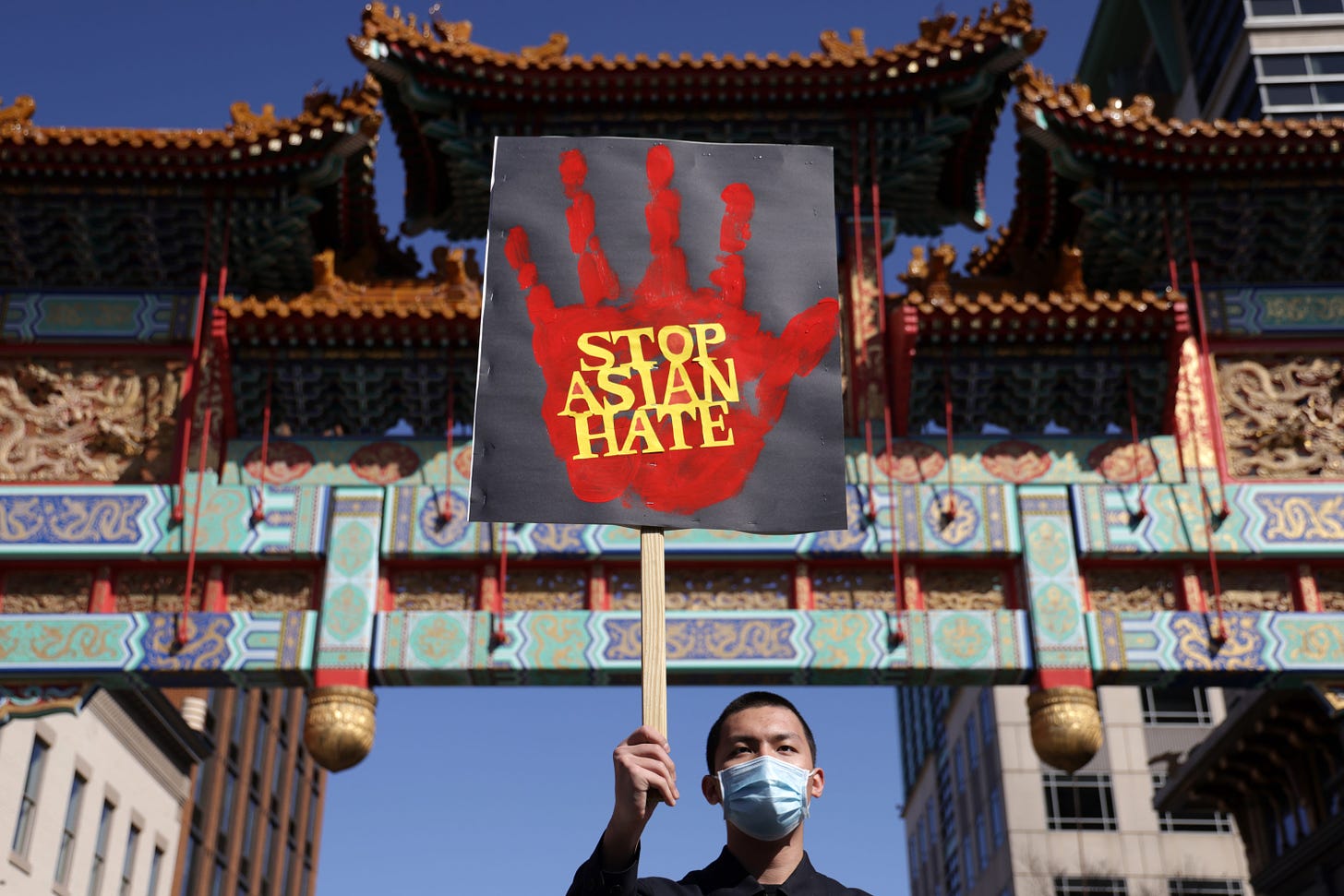What We Can Learn from Asian Americans
Appreciating their achievements at a time when acts of bias against them—including disturbing crimes—are on the rise.

This much can be said without fear of contradiction: There has been a spike in disgusting crimes against Asian Americans during the past year. One analysis of sixteen of the country’s largest cities found that anti-Asian hate crimes increased by 145 percent between 2019 and 2020, even as other hate crimes declined. They range from vile insults hurled at subway riders in New York (“Get the f--- out of NYC”), to violent assaults—especially against the elderly—on streets, on buses, and in businesses, to the murders of six Asian women in Atlanta. The attacks are often accompanied by slurs and references to the coronavirus. In February, a man brought a mutilated, dead cat to a Sacramento butcher shop owned by Asians and dumped it in the parking lot.
Those attacks are standard xenophobia. The Atlanta massacre seems to have been something more complex—a mash-up of multiple pathologies including anti-Asian bias, disordered sexuality, and the mass-shooting psychosis that many disturbed minds now seem to regard as the logical climax of grievance.
But beyond those basic facts, the picture gets confused. Is the rise in anti-Asian hate crimes a symptom of white supremacy? Most left-of-center outlets interpret it that way. It’s certainly possible that many of the crimes were expressions of white supremacy. But how do we categorize the anti-Asian attacks committed by African Americans and Hispanics? Voice of America looked at some of the data:
In New York City, where anti-Asian hate crime soared nearly nine-fold in 2020 over the year before, only two of the 20 people arrested last year in connection with these attacks were white, according to New York Police Department data analyzed by the Center for the Study of Hate and Extremism. Eleven were African Americans, six were white Hispanics and one was a Black Hispanic.
This is not to let anyone off the hook—the United States has a long history of anti-Asian bigotry that has included discrimination, segregation, exclusion, massacres, and internment—but just to pump the brakes a bit on the white supremacy talk in this particular case. (The Derek Chauvin trial is another matter.)
Also, let’s not omit the other side of the story. There’s a reason so many Asians and others are eager to immigrate here. They really can enjoy political freedom, practice their religions, speak their minds, improve their incomes, and secure vast opportunities for their children.
The term “model minority” has become unfashionable, but as Manu Sarna writes in Quillette, it was coined for a reason. Asians are more law-abiding by a large margin than the general population. They claim fewer unemployment benefits, have higher incomes, and have higher rates of business-ownership than any other racial/ethnic category. They get and stay married at higher rates than others and 84 percent of their children grow up in two-parent families (compared with a national average of 68 percent in 2013-15).
Here are some other things we could all copy from Asians: They watch less TV, do 50 percent more homework, and hoover up lots of awards.
You know what immigrant group is similar? Nigerians. Immigrants from Nigeria and their children are among the most highly educated groups in America, with 61.4 percent of those over age 25 and older holding a bachelor’s degree or higher, more than double the rate of the general population. Their median income is above the national average, and their divorce rate is below it.
This is not to disparage native-born blacks, whites, or Hispanics, nor to suggest that the solution to deep inequalities and injustices in our society is to “pull yourselves up by the bootstraps.” There’s a world of difference between coming from an African nation and growing up in a society where your great-grandparents could have been born slaves and where racial discrimination has persisted (though radically reduced) to the present. We are a long way from healing those wounds. But it is also true that the cultural patterns among immigrants are in some respects superior to our own. And if we can learn from them, why wouldn’t we? Culture is not immutable like skin color or blood type. Culture can change.
Both Asian Americans and Nigerian Americans thrive for many reasons, but certainly an important factor is strong families. The kin who support each other, loan each other money, help out when someone is ill, tutor the nephew struggling with algebra, drive one another to job interviews and so on cannot exist without the foundation of marriage. Marriage is the essential first link in the chain of family formation, and strong families—including extended families—are more important than any other factor in human flourishing. One of the most vicious aspects of American slavery was the purposeful separation of husbands and wives, parents and children. It’s perverse to suggest that high levels of births to unmarried mothers among African Americans (70 percent) have no effect on the life outcomes of black children. Besides, the rates are destructively high among Hispanics (52 percent) and whites as well (28 percent)—with the exact same results. Kids raised by single mothers (it’s usually mothers) are at a disadvantage no matter their ethnic group.
So by all means let’s protect Asian Americans from hate crimes and other offenses. And let’s strive to transcend the primitive urge to divide the world into us and them. But we can do something more. We can recognize superior habits and emulate them.
Correction: March 31, 2021, 6:07 p.m.: The article originally said that eight Asian-American women were murdered in Atlanta on March 16. Seven women and one man were murdered, but only six of them were of Asian-American descent.




